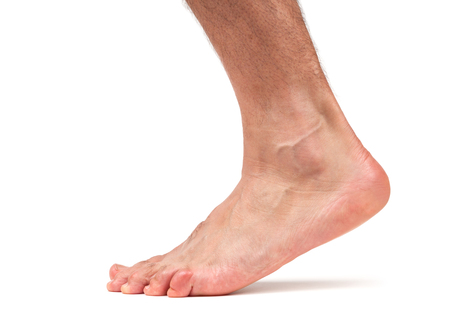
One of the easiest ways to determine if you have flat feet is to wet your feet and then stand on a dry, flat surface and notice the pattern on the floor. If you have flat feet there will be a full foot imprint rather than one that shows the arch.
Untreated flat feet cause an untold number of foot and ankle problems that even radiate to the knees, hips, and back. People are frequently amazed at how a simple thing like properly fitted orthotic shoe inserts can so drastically alter their lives for the better.
The two main types of flat feet are:
- Acquired flat feet—The large band of flexible tissue that forms your arch is actually under continuous pressure whenever you are standing, and eventually can’t handle the stress. As your arch lowers, considerable pain is caused through your entire foot and the pain radiates to the ankle. Conditions like plantar fasciitis are often diagnosed in those who have acquired flat feet that are not properly treated.
- Hereditary flat feet—“Flexible flat feet” is the most common hereditary type. This means that you have a noticeable arch but when you put weight on your foot the arch flattens out.
It’s imperative that you seek the assistance of your foot doctor to find out what type of flat feet you have to ensure proper treatment. At Your Next Step, our team of board-certified podiatrists has access to advanced technologies, along with years of experience, to help diagnose and treat a variety of foot and ankle problems, including sports injuries, joint pain, toe deformities, nail fungus, chronic tendon pain, and skin problems. Dr. Eric Ricefield, Dr. Mark Yagodich and Dr. Aliza V. Eisen provide high-quality foot and ankle care to patients in the greater Philadelphia area at our offices conveniently located in Ardmore, Paoli, Woodlyn, and Downingtown. Please contact us for more information or to schedule an appointment.
